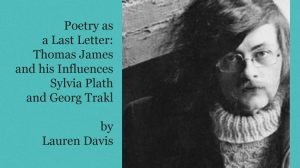
Free Speech Canto XXVI
Banned in Boston
constitutes an epic of censorship
A few excerpts from that epic:
A private morality police was formed
(giving away its religious base
with the occasional use of the word crusade)
"quietly,
unobtrusively working underground,
guarding us from the pestiferous evil,
which at any time may come up into our faces,
into our homes, into our children's lives"
And they targeted a Boston publisher
who wanted to bring out an edition
of Walt Whitman's Leaves of Grass
Whitman was willing to cut ten lines
and six other words and phrases,
but
that wasn't nearly enough to satisfy the
"narrow-minded tyranny and bigoted self-righteousness
of the censors,
so the book
was published in Philadelphia instead,
the publisher saying
"Those Boston fools have already made me
more than $2000"
A few decades later came the so-called
"gentlemen's agreement",
where the so-called gentlemen,
the bookseller Richard F. Fuller
of the Boston Booksellers Committee
and magazine wholesaler John J. Tracey
and their cohorts on both committees
(who
included members of the morality police),
took it upon themselves to decide
what was appropriate and what wasn't
"If the bookseller won't sell
and the reviewer won't review,
the book might as well never have been written"
and
more than fifty books (possibly a lot more)
and an unknown number of magazines
were unavailable for sale
during the dirty dozen years
of the "gentlemen's agreement"
and fuller
was proud of his 'accomplishment',
boasting
at a booksellers convention that his home state
"stands today as the cleanest state in the Union"
After the end of the gentlemen's agreement
in 1927,
a plea from one of the newspapers:
"Do not make us as ridiculous . . .
Do not broadcast the idea that we are children
Do not conclude that somebody must tell us
what we may see and read and hear and think
Do not revise our dictionaries
by leaving out all the bad words
and all that might be proved to have
unsavory connotations
Leave our dictionaries as they are
and trust the human race to work out its own destiny,
under free play of individual freedom"
Ha!
Fat chance of that in the "Athens of America"
There was police censorship for a while,
with
ninety books banned in the first year alone,
then
the resumption of private censorship,
with
the egregious Fuller now having more authority,
and
having the backing of some intellectuals:
"Everyone is happy
The affair has been conducted in complete privacy,
free of official dictation and social control
There has been no official censorship,
no one has achieved any objectionable publicity,
the police are tranquil and the booksellers safe,
and
if any freedom of any Bostonian
or any author has been infringed,
Boston does not give a damn"
And
that was that for a few more decades-----
Free Speech Canto XXVII
A Saturday afternoon in April 1940
in Rochester, New Hampshire,
and
Walter Cahplinsky was preaching on the street corner,
among other things calling organized religion "a racket",
and
though it was not yet open season on Jehovah's Witnesses
as it would be a few months later after Gobitis [sic],
the town wasn't straining itself
in zealously defending Chaplinsky's rights
When it appeared he might be murdered
("Chaplinsky Beaten by Irate Mob"
said the next day's newspaper headline)
the police took Chaplinsky into custody
(whether he received any treatment for his beating
is never mentioned in the historical record)
As he was being taken to the station
Chaplinsky encountered James Bowering,
a town marshal
who had done nothing to prevent the beating
and had also not arrested any of the assailants,
and
reacted to what he perceived as a
double dereliction of duty by calling Bowering
"a damn fascist and racketeer"
(or
some variation of that word order;
accounts differed),
and was then arrested
for violating a New Hampshire law
forbidding the use of "any offensive or derisive name . . .
with the intent to deride, offend or annoy . . .,
or
to prevent . . .pursuing . . .lawful . . .occupation"
Possible perjury may have added the adjective
'Goddamned' to the other words used;
Chaplinsky admitted using the words
attributed to him,
with
the exception of any reference to a deity,
and
alleged that Bowering had cursed him first
and he was responding in kind
(not very turn-the-other-cheek,
but
that's a private, not public, matter here)
And yet
the Supreme Court found no error,
saying
"the refusal of the state court to admit evidence
offered by the defendant tending to prove provocation
and evidence bearing on the truth or falsity
of the utterances charged is open to
no constitutional objection"
(there wasn't then,
and there isn't now,
a constitutional right
to a factually accurate trial,
but
that's a subject for a different poem),
and that
Chaplinsky's words were unprotected
by any guarantee of free speech,
because of
"the insulting or 'fighting' words . . .
which by their very utterance
inflict injury or tend to excite
an immediate breach of the peace"
(incidentally, to this day
the only so-called fighting words
ever found by the Court)
And
the Court imputed retroactive power
to the word fascist,
as we
weren't at war with fascists in 1940
And
the Court found that those specific words
"are no essential part of any exposition of ideas",
despite
the fact that those specific words seemed to be
an accurate description of the situation-----
Free Speech Canto XXVIII
A century hence H.L. Mencken would say
that a Puritan was someone obsessed by
"the haunting fear that someone, somewhere may be happy"
and both capital P and small p Puritans
were everywhere in early America,
and
thus was the prosecution of Jesse Sharpless
by the Commonwealth of Pennsylvania
Sharpless was a resident of Philadelphia
charged with lewdness in December 1815;
it was said that he
"scandalously did exhibit and show for money"
a painting in his house,
a painting now lost to history,
a painting purportedly
"representing a man in an obscene . . .
and indecent position with a woman"
"The corruption of the public mind"
(even that taking place in private)
"by lewd and obscene pictures exhibited to view"
and
"actions against PUBLIC DECENCY
were always crimes"
and
"must necessarily
be attended with the most injurious consequences"
And Sharpless was found guilty,
even though
"there is no act punishing
the offense charged against these offenders,
and therefore
the case must be decided upon judge-made principles"
The judge-made principles of an ecclesiastical court
that had no place even then,
and
has no place now
in the idea and fact of America------





Leave a Reply